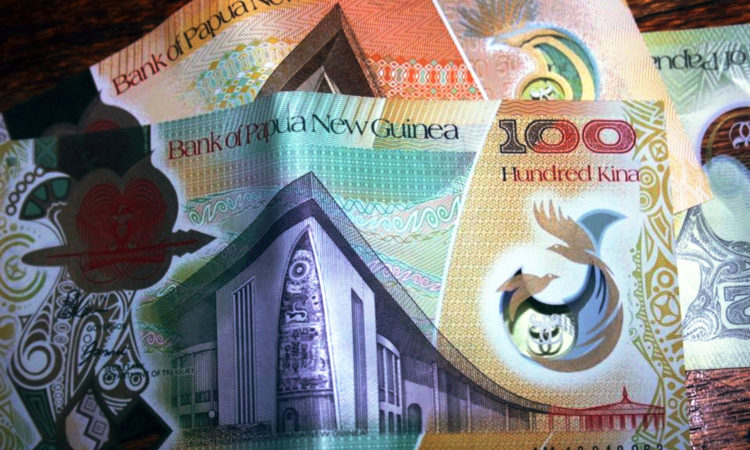Is Tuition Fee-Free (TFF) Solving All School Fee Problems?
The TFF is a government policy where parents are not to pay any fees for their children attending elementary to secondary level of education in Papua New Guinea. However, school boards can and do institute project fees for infrastructure development in their schools and these fees vary across the country.
There have been circulars issued by the Education Department advising schools to be cautious of the project fees as it disrupts the purpose of TFF.
The TFF is a relief leverage policy geared towards improving access to quality education.
The national government takes responsibility of the education of all Papua New Guineans but not at the higher education sector in retrospect to tertiary education study assistance scheme and higher education loan program policies.
The views provided below are mine and it do not represent any state department or an institution.
The issues raised herein should underpin remedies and policy shift for improving TFF use.
Is it Feasible for Funds to be Directly Deposited into School Accounts?
The comfort provided by TFF is that these funds are not deposited into the provincial education operating accounts but done to each school’s nominated accounts.
When funds are released by the National Government, it is the prerogative of the school administration to withdraw and support the service providers.
The key signatories are the headmasters, deputy headmasters, board chairmen, treasurers, or secretaries.
But for church or private institutions this sort of arrangement could be different.
The feasibility of state funds directly deposited into school accounts brings to the fore some areas of concern.
One of the issues is when the signatories of the schools’ operating accounts have been voted out in a meeting or transferred to other schools.
Some of these signatories take with them the cheque books and school stamps and the new signatories must inform the bank of the signature changes.
It becomes time consuming and stressful for those in the remote schools.
Proper Accountability of Funds
The TFF funds are deposited on installments, which means the expected total funds per year are not deposited into schools’ operating accounts.
These are taxpayers’ money that requires proper accountability and transparency in the usage of these funds.
Some schools do not have proper accounts of records that shows the expenditure of these funds.
Some officers in the school administration do not have proper bookkeeping and basic accounting skills and it becomes difficult to trace the expenditures.
Increase of Creditors
Since TFF was introduced, we are also witnessing the increase of creditors especially in the rural areas.
These schools face the financial difficulties of paying for the utilities, food, stationary, and other essential supplies.
In boarding schools, students must be fed three times a day and if the school administrations do not receive the TFF funds on time these schools go about getting credits and short loans from retail stores, wholesalers, or any other financiers.
Those who run financial services require 50 per cent or more on top of the loaned amount.
Likewise, if schools delay in paying for the goods from the retailers and wholesalers, court cases are filed in the district or national court, summoning the principal/headmaster or school board members to appear.
I have literally witnessed cases in rural Erave where some creditors forcefully march into the school premise and remove equipment or any other facilities.
The school headmasters are tight lipped to speak up as he or she owes those creditors.
For example, a person has loaned the school K2,000 and if that is not paid, the financier can remove the school printer valued at K17,000.
It becomes very difficult to solve such problems when there are no police present.
Abuse and Corruptive Acts Tied to It
Some headmasters and principals perceive TFF as dividends or a windfall from their investments.
Their salaries are tied to their children’s school fees, loan repayments with commercial banks, cultural obligations, and other family needs.
They see TFF as their support base for personal benefit or any other related social activities.
Considering this, some squander TFF funds in hotels, playing poker machines, drinking alcohol and partying.
Such activities occur because the school board members are bribed or compromised.
In most cases, all benefit in the squandering of the TFF funds.
Weakening Student Performance and Creating Indifference Among Staff Members
The usage of TFF in schools is now a public knowledge and teachers know what happens with these funds.
Some are quiet as they fear they may be reprimanded, demoted, or transferred.
Other times, board members question those teachers who raise issues on TFF use.
These teachers, at certain times do not perform well in their teaching duties and in turn affect the learning of their students.
Obviously, when there is shortage of mess food, the students know that TFF have been misused and this leads to early school closure and poor performance of grade 8, 10 and 12 national examinations.
Recommendations to Tighten Up TFF Usage
The Department of Education over the last five years has received more than K3 billion under the TFF appropriation.
In the last 10 years, the National Government has spent over K6.5 billion.
This is the taxpayers’ money.
The commonality of such funding is the outcome or the result.
Many questions are being asked whether these funding have translated into well educated students, sufficient school infrastructure, academic excellence and many more.
We are very keen to know the performance of the students who have benefited from TFF entering higher education institutions.
As the responsible state institution, the department, authorizes the millions of taxpayers’ monies into these school accounts.
The level of complacency that exists at our institutional level must be rectified.
It is the responsibility of Education Department officers to visit schools through out the country and audit school accounts and infrastructure.

